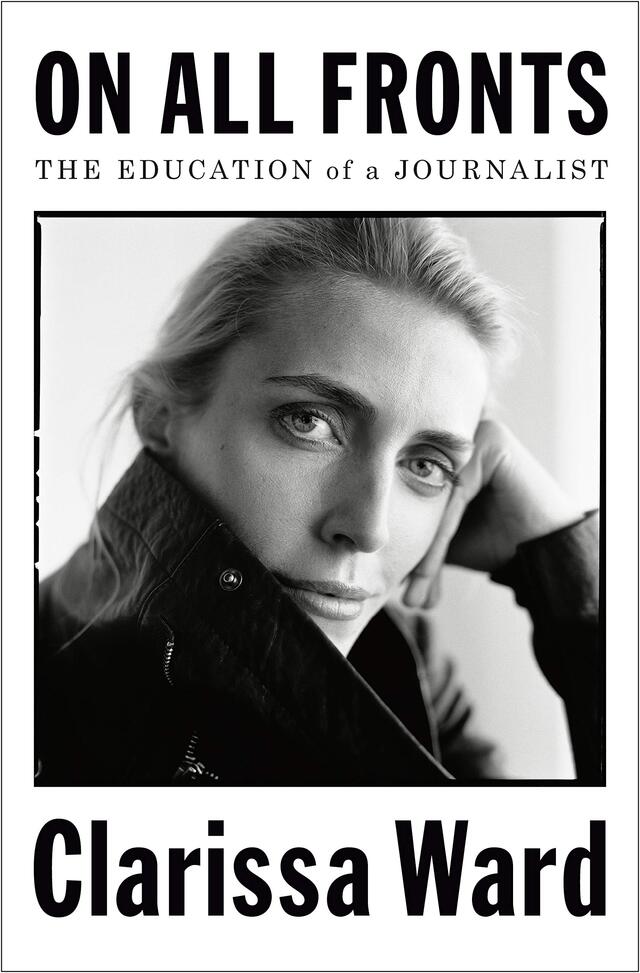
Journalist Clarissa Ward Speaks on Reporting from War Zones

Clarissa Ward was a senior at Yale University when the September 11, 2001, terrorist attacks took place. The world-altering event opened her eyes to the importance of geopolitics and slowly turned her into a news junkie.
“It [became] clear to me that there was a huge chasm between the way we perceived ourselves as a nation,” she said, “and the way the rest of the world perceived us.”
Nearly two decades later, the CNN correspondent is an award-winning international journalist who has worked for major outlets and reported from conflict zones across the globe.
Ward discussed her career and her new book, On All Fronts: The Education of a Journalist at a November 20 event sponsored by the Saltzman Institute of War and Peace Studies. SIWPS director Keren Yarhi-Milo hosted the talk, which also featured SIPA professors and international affairs experts Lisa Anderson and Dipali Mukhopadhyay.
Ward began by recounting her time in Iraq during the United States’ war on the country, and considered where journalists might have failed in their coverage. There’s an argument to be made, she said, that the media was mostly sold on the war and the idea that Iraq had weapons of mass destruction. This was partially due to the Bush administration “creating the illusion of multiple sources” by anonymously providing information to journalists, and later confirming those same stories. In addition, journalists in Iraq stayed in sheltered bunkers and were taken care of by the U.S. military, detaching reporters from the violent situation on the ground and fostering a one-sided bias.
After leaving Iraq, Ward spent time in the country of Georgia during the Russian incursion there and later in China. It was when she began covering Syria, Ward said, that her understanding of the role of journalists was seriously challenged.
Journalists in conflict zones may want to save lives and stop wars and prevent massacres, she said, but “despite one’s best intentions, it doesn’t work that way….I began to understand my job in much humbler terms.”
Mukhopadhyay, who has conducted research in Afghanistan and other conflict zones, asked about Ward’s experience coming home after working in the field. Ward said she was intensely emotionally involved with the crisis in Syria; she observed that returning to a normal life after being surrounded by so much violence can be a jarring experience that causes feelings of guilt, self-loathing, and detachment from one’s own day-to-day life.
Unfortunately, Ward explained, the discussion around war journalists’ mental health is still somewhat taboo despite the fact that so many experience secondary trauma and symptoms of post-traumatic stress. “You don’t get really sad, you feel nothing,” Ward said, “which is much worse in many ways.”
Anderson asked Ward about the impact of journalists on conflict situations. Being with people during emotional situations is a big part of the job, Ward explained. She recounted a moment where she was with a family that learned that a relative had been killed.
“My job was to sit with their grief, horror, and loss, and just be present, and not look away, and not flinch,” she said.
Indeed, Ward said one reason she wrote her book was to tell these stories of small moments of human connection that may not make it to the evening news.
Noting the panel of all women, and answering a question from the audience, Ward encouraged aspiring women journalists to consider their gender an asset. Having access to and being able to form a connection with women in conflict zones uncovers crucial information about the impacts of war and violence.
— Aastha Uprety MPA ’21
Book Talk: On All Fronts: The Education of a Journalist November 20